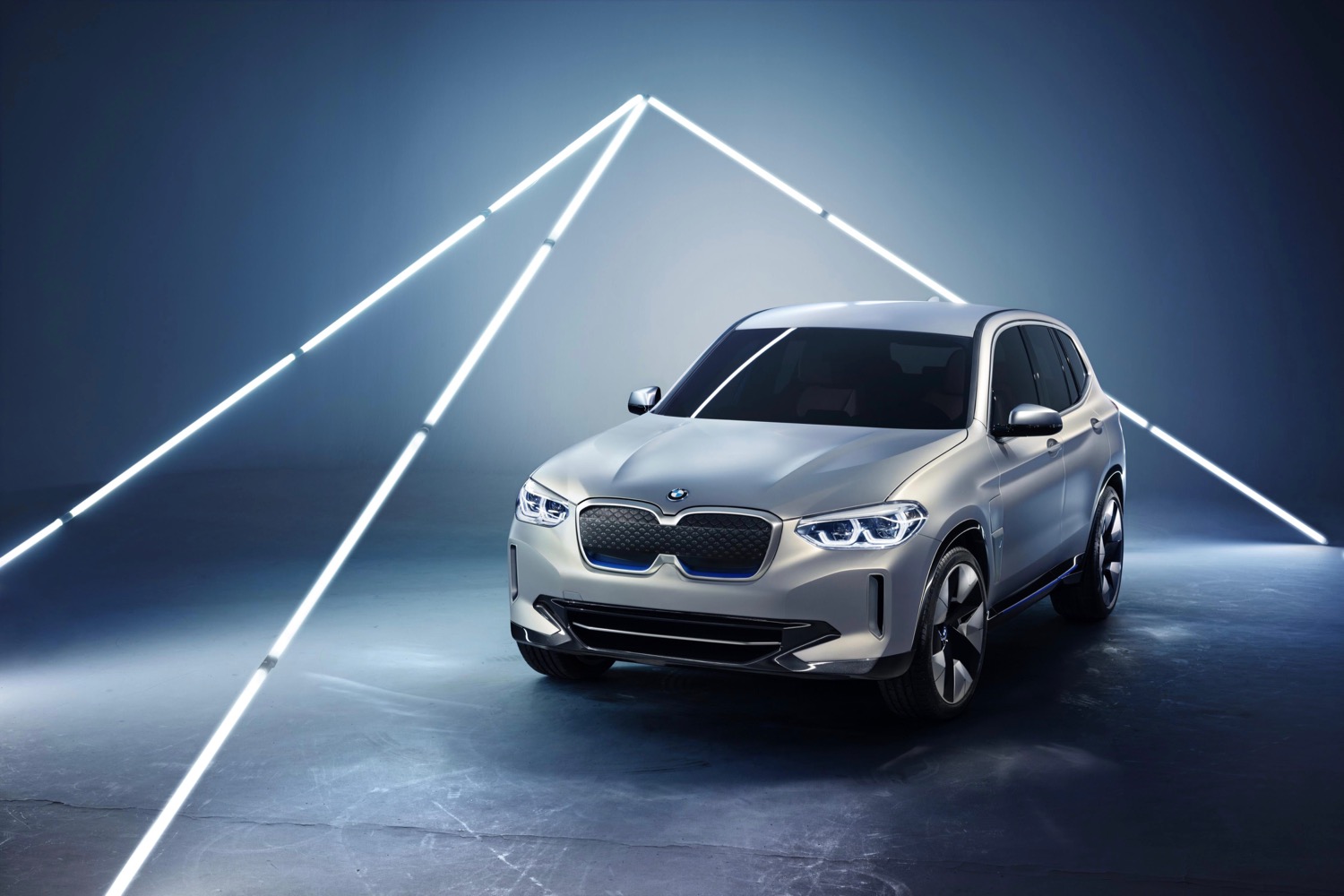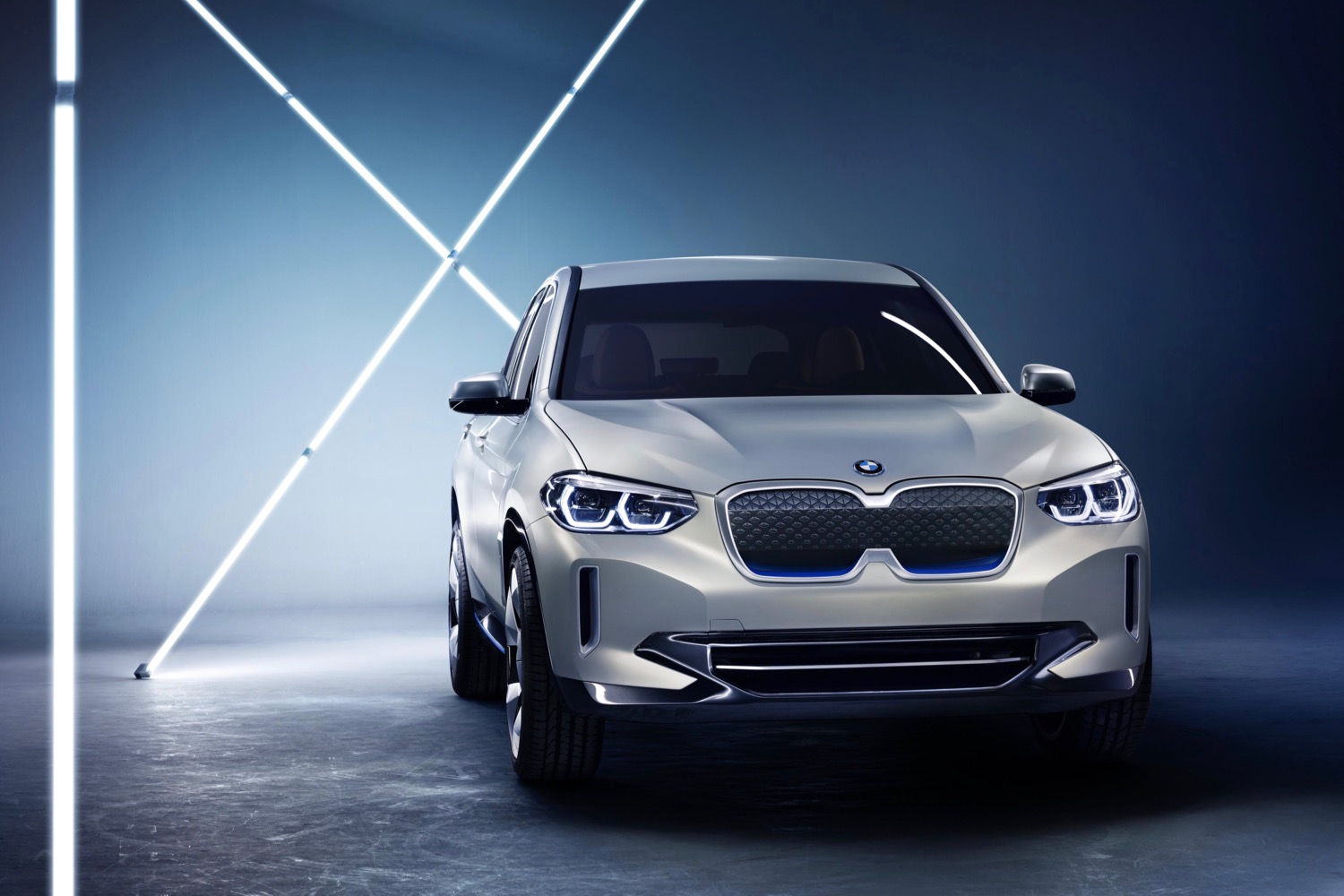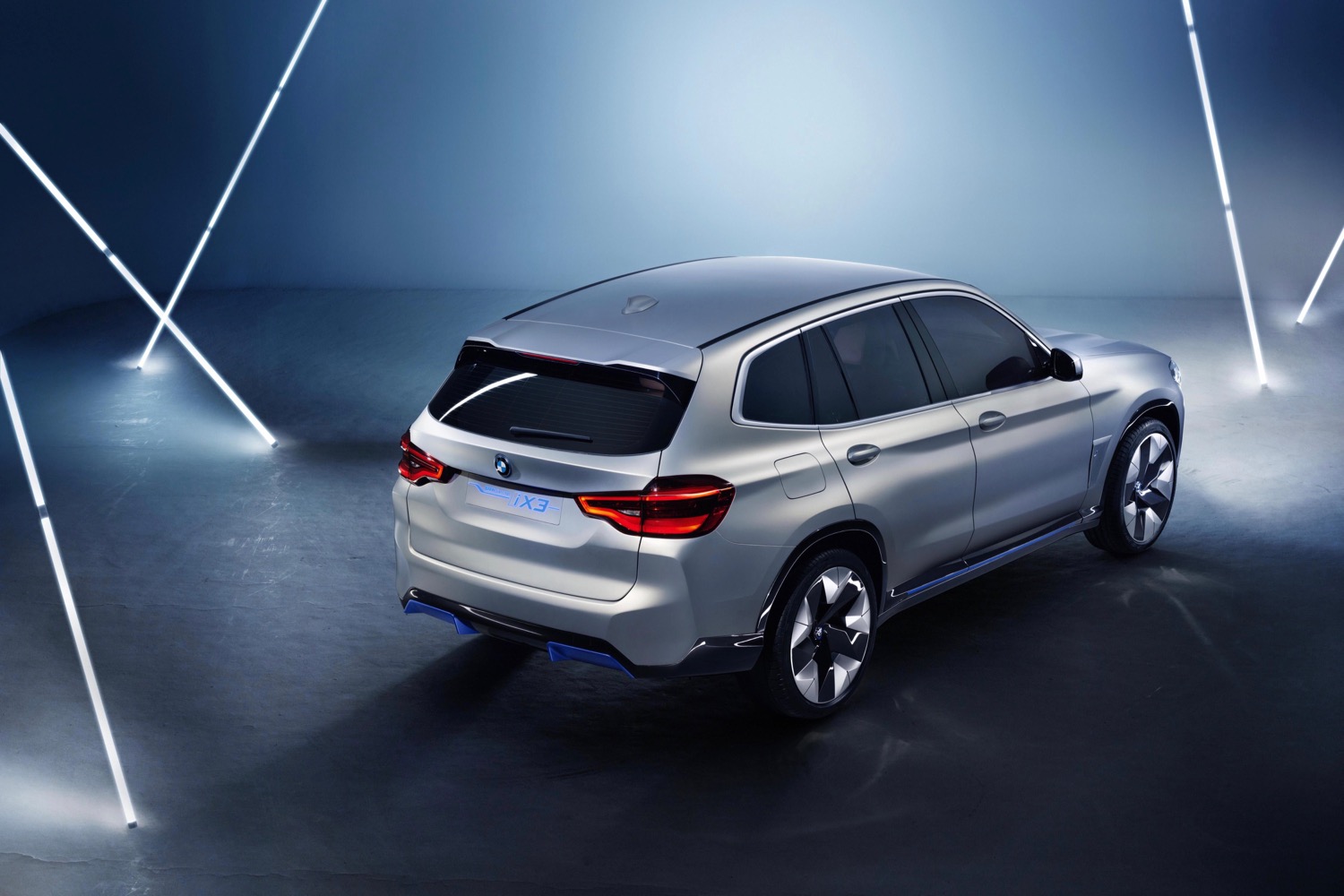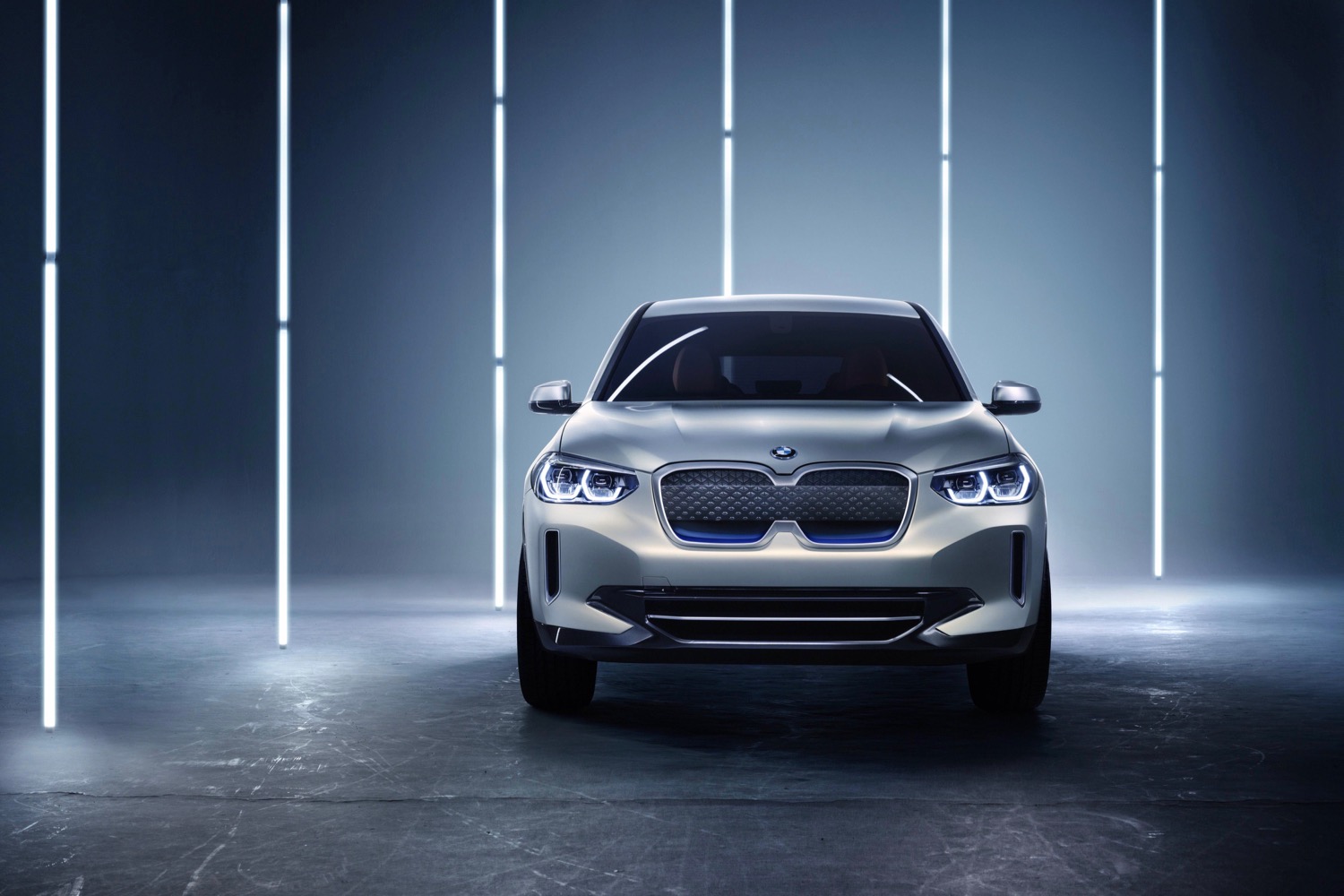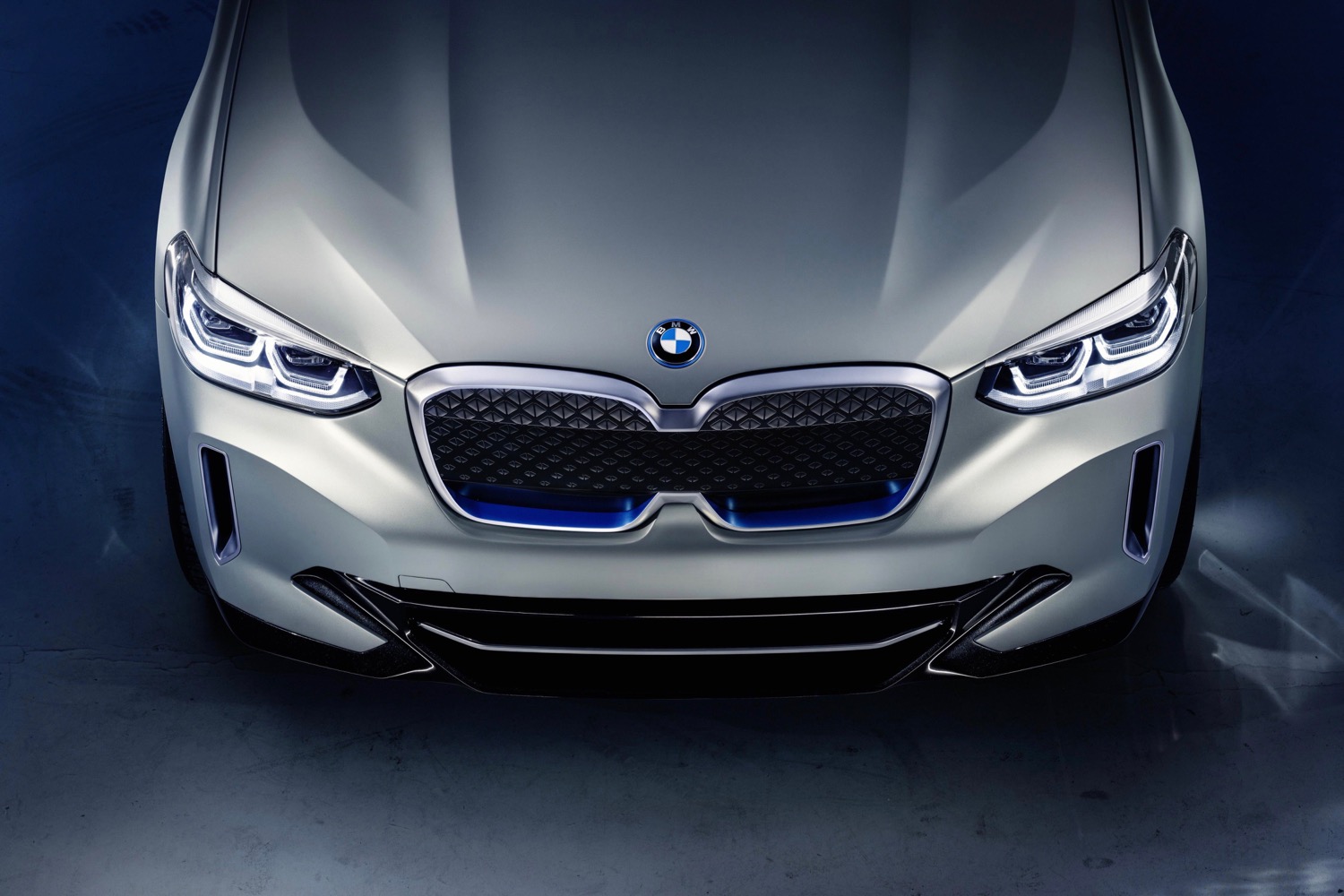BMW’s product plans include an all-electric version of the X3 crossover in 2020, and the automaker is offering a glimpse of what that vehicle will look like at the 2018 Beijing Auto Show. The BMW Concept iX3 is much more conventional than the current BMW i3 electric car, but that means it may sell in larger numbers as well.
The Concept iX3 looks like an X3 with the grille from the BMW i Vision Dynamics concept. It’s a new take on BMW’s trademark “twin-kidney” grille that probably won’t sit well with fans, given how much the traditional design has been altered. But we wouldn’t be surprised to see the grille and other styling elements from the Concept iX3 carry over to the production model.
An electric motor propels the Concept iX3 with 270 horsepower, while a 70-kilowatt-hour battery pack allows for 249 miles of range. That’s as measured on the European WLTP testing cycle, so the U.S. EPA figure might be a bit different. DC fast charging allows for a nearly complete charge in around 30 minutes.
When it enters production, the all-electric version of the X3 will mark a significant milestone for BMW. The German automaker was one of the first to get serious about electrification, with the i3 and i8 plug-in hybrid. But both cars were radical departures from the norm in styling and design, winning BMW praise but also limiting sales potential. So BMW began adding electrified powertrains to its more mainstream models, starting with plug-in hybrids, and now, with the X3, moving on to all-electric powertrains.
Like most other automakers, BMW is concerned about stricter future emissions standards. While the Trump Administration is looking to lower emissions targets, Europe and China will push ahead with tougher regulations. BMW must also compete with automakers like Volvo, Jaguar Land Rover, and Infiniti that are planning to offer hybrid or all-electric powertrain options across their entire lineups.
Not every future BMW will be electrified, but many of them will be. The automaker plans to launch 12 all-electric cars by 2025. The first will be a production model based on the Mini Electric concept, due in 2019, followed by the electric X3 in 2020. In 2021, BMW will unveil an electric sedan code-named iNext, which is also expected to have some degree of autonomous-driving capability.
